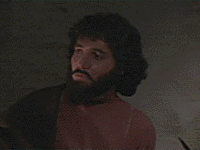 |

|
|
Philip (disciple)
First mention: Matthew 10:3
Final mention: Acts 1:13
Meaning of his name: "Lover of horses"
Frequency of his name: Referred to 16 times
Biblical books mentioning him: Five books (Matthew, Mark, Luke, John, Acts)
Occupation: Apostle
Place of birth: Probably the Galilean city of Bethsaida (John 1:44)
Place of death: Tradition says he died at Hierapolis, a city near Colosse and Laodicia.
Important fact about his life: He led Nathanael to Christ (John 1:45,46).
Copyright 1999, used by permission from Dr. H.L. Willmington.
One of the twelve apostles, he was a native of Bethsaida. He readily responded to the call of Jesus and also brought Nathanael to Jesus. He seems to have held a prominent place among the apostles. He is among the company of disciples at Jerusalem after the Ascension and on the day of Pentecost. Of his later life, nothing is known for certain. He is said to have preached in Phrygia and to have met his death at Hierapolis.
He was one of the "seven full of the Spirit and of wisdom" called to deal with the neglected widows in the Jerusalem church; also called "the evangelist." He was one of those "scattered abroad" by the persecution that arose after the death of Stephen. He went first to Samaria, where he labored as an evangelist with much success. While there he received a divine command to proceed toward the south along the road leading from Jerusalem to Gaza. These towns were connected by two roads.
Philip was directed to take the one that led through Hebron and a district called the "desert." As he traveled along this road, he was overtaken by a chariot in which sat a man of Ethiopia, the eunuch or chief officer of Queen Candace, who was reading, probably from the Septuagint version, a portion of the prophecies of Isaiah. Philip entered into conversation with him, expounded these verses, preaching to him the glad tidings of the Savior. The eunuch received the message, believed, and was baptized, then "went on his way rejoicing." Philip was instantly caught away by the Spirit.
He was next found at Azotus, where he continued in his evangelistic work until he came to Caesarea. He is not mentioned again for about twenty years. He is still found at Caesarea when Paul and his companions were on the way to Jerusalem. He then finally disappears from the pages of history.
(www.biblestudytools.net/Dictionaries/SmithsBibleDictionary/?word=Philip) (www.biblestudytools.net/Dictionaries/EastonBibleDictionary/?word=Philip)
